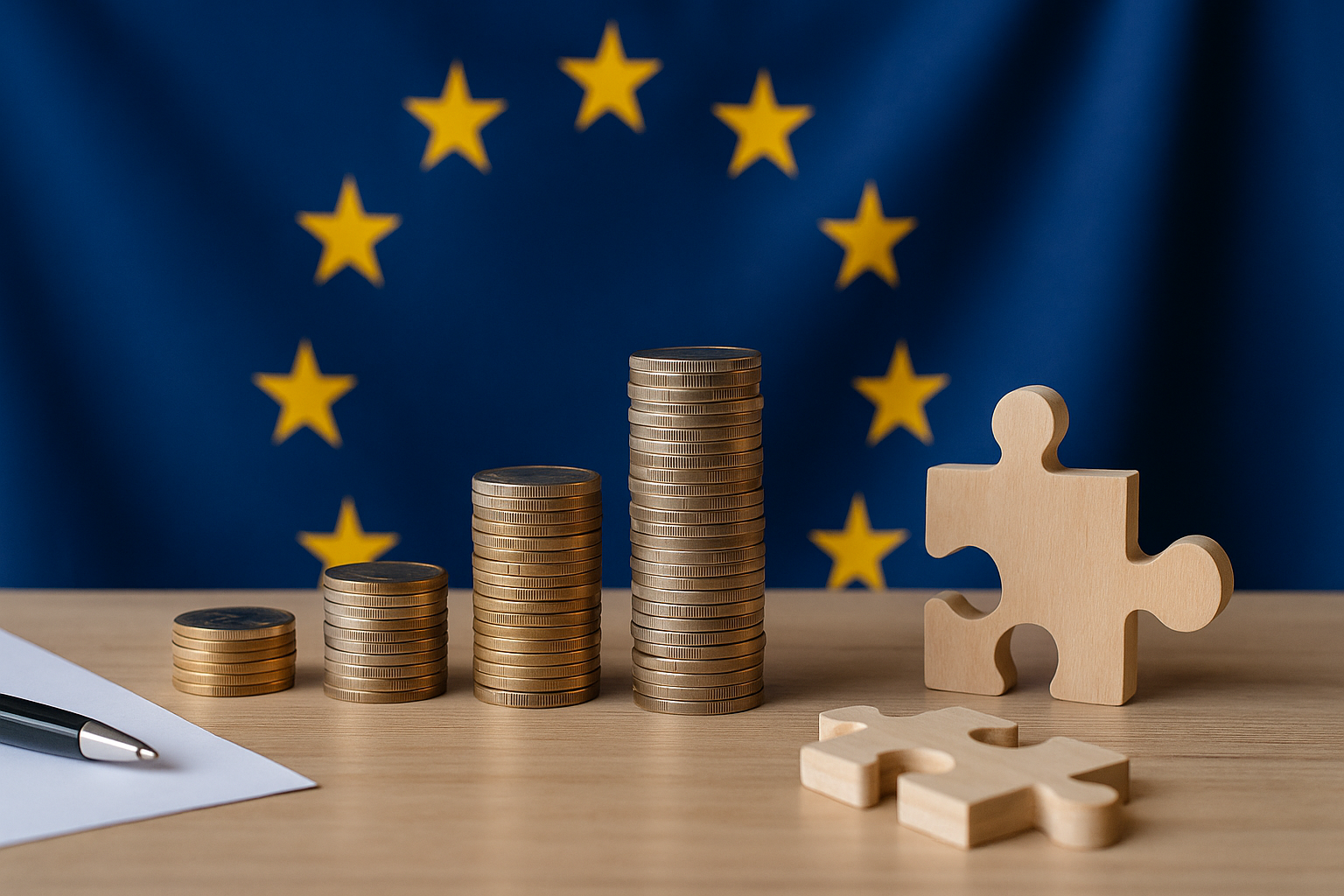
Does the EU become independent of the Member States with its own taxes? Meaning, opportunities and risks for SMEs in Europe - Image: Xpert.digital
How the EU wants to finance its future
Between debt and the future: the complex financial plan of the EU
The European Commission is faced with the challenge of financing the next multi-year financial framework (MFF) 2028-2034, while at the same time the debts of the Next Generationu program * 1 to 2058 have to be paid back.
*1 “Nextgenerationu” is a European reconstruction fund that was created in response to Corona pandemic. It is the largest economic stimulus package in EU history. The aim is to cushion the economic consequences of the crisis, to promote investments in digitization and climate protection and to make the EU more resistant in the long term. The program is financed by the EU's joint debt admission.
The annual repayment costs are expected to be 25 to 30 billion euros per year, which corresponds to almost a fifth of the current annual budget. In this context, leaked documents on the planned own fund reform have proven to be particularly revealing.
More about it here:
Content of the leaked proposal
According to the leaked documents, the EU Commission plans a comprehensive package of new own funds, which goes well beyond the previous proposals. The most important elements include:
New company levy
The most remarkable part is a new tax for large companies with annual sales of more than 50 million euros. This is to be introduced as a annual flat -rate contribution, staggered after the turnover of the companies. All companies based on tax and companies from third countries with EU branches or branches would be affected in the EU.
Increasing existing taxes
The plastic delivery of 80 cents per kilogram of non -recycled packaging, which was already introduced in 2021, is to be increased from 2028 and will be adapted annually to inflation in the future. The Commission justifies this with the fact that the inflation has significantly reduced the real value of the income.
New taxes to different areas
- E-WASTE SEVENT: A levy on non-collected electronic waste as new own funds
- Tobacco tax share: A certain proportion of the tobacco taxes collected by the Member States should be paid to the EU
- E-commerce tax: a delivery to parcel from abroad in the context of e-commerce
Changes in traditional own funds
The Commission plans to increase the proportion of customs revenues that the EU countries may withhold as survey costs. Member States currently keep 25 percent of customs income - this proportion is to be reduced.
All changes to the own agent system require the unanimity of the 27 EU member states after hearing the European Parliament. This is a significant hurdle, since Poland has already threatened to make his veto in all matters that require unanimity.
Ratification process
After a unanimous decision in the Council, all Member States must ratify their own funds. This process can last for years, as the experience of ratification of the current own funds have shown.
Resistance of the Member States
Significant resistance is already emerging. Fourteen Member States spoke out in a non-paper against the commission plans for the centralization of the middle administration. Several fiscal conservative Member States have skeptically commented on the opening of the MFF already decided.
Economic impact
The new company levy would mean a significant additional burden for large companies. Multinational corporations that already suffer from various international tax initiatives would be particularly affected. The Commission emphasizes that it is not a direct tax, but a contribution to be made by the Member States, but the burden should ultimately be passed on to the companies.
competitiveness
The new taxes could affect the competitiveness of European companies compared to international competitors. This is in a certain contradiction to the simultaneous investments in the European competitive funds of up to 522 billion euros.
Inflation effects
The planned indexing of plastic delivery to inflation shows that the commission expects increasing prices in the long term and wants to adjust the own funds accordingly.
Federalism and sovereignty
The own agent reform represents an important step towards a European fiscal union. By diversifying the sources of income, the EU becomes more independent of direct contributions from the Member States. This could strengthen the commission's negotiating position in future budget negotiations.
National sovereignty
The new own funds touch traditional areas of national sovereignty, in particular the taxation of companies and control over revenue from tariffs and taxes. This is likely to encounter considerable resistance, especially in countries with strong emphasis on national sovereignty.
Democratic legitimacy
The European Parliament has repeatedly called for an increased role in the design of the own funds. The current proposals could strengthen the democratic legitimacy of the EU budget if they are connected to corresponding parliamentary control rights.
Timing and implementation
The Commission plans to submit its formal proposal on July 16, 2025. This leaves little time for detailed consultations and adjustments. The new MFF must be decided by 2027 at the latest in order to be able to enter into force in time for January 2028.
Transitional regulations
Since negotiations on new own funds typically take years, the Commission may plan transitional regulations. The temporary own funds based on corporate gains could serve as a bridge solution until more extensive reforms could be implemented.
Between sovereignty and solidarity: the explosive plans of the EU Commission
The leaked proposals for own agents have been one of the most far-reaching changes to the EU financial system for decades. They aim to make the EU financially independent and at the same time ensure the repayment of the Nextgenerationu debt. However, the proposals will encounter considerable political resistance and require complex negotiations.
The reform touches fundamental questions of European integration, national sovereignty and democratic legitimacy. While she could strengthen the EU's financial ability to act, it also carries the risk of further burden on companies and possible conflicts between the Member States.
The success of the reform will significantly depend on whether the Commission takes the concerns of the Member States seriously and finds compromises that respect both the financial stability of the EU and the sovereignty of the Member States.
Advice - planning - implementation
I would be happy to serve as your personal advisor.
Head of Business Development
Chairman SME Connect Defense Working Group

